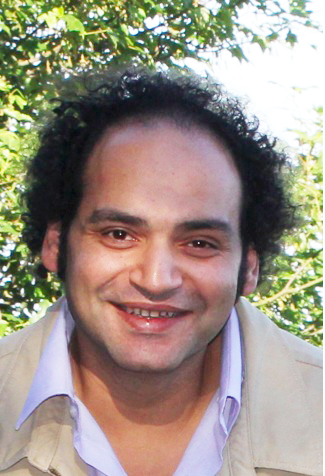By Philip Shishkin
WASHINGTON, DC: In its decade-long slog to secure Afghanistan, the United States has juggled contradictory foreign policies in Uzbekistan and Kyrgyzstan, the fragile Central Asian states with key supporting roles in the war. There’s the policy of engaging the two post-Soviet states for their own sake, promoting good governance, human rights, and business ties — the usual grab-bag of US diplomacy. Then there’s the policy of using them as logistical hubs in the Afghanistan war.
Unfortunately, the two policies have often worked at cross purposes, diminishing America’s long-term influence in the region and at times hurting its ability to conduct the war. And, as the US pours more troops and money into Afghanistan, military expediency is once again trumping other policy goals in Central Asia.
In some ways, that is understandable: the US has a war to wage on a tight, self-imposed deadline. Fuzzy, feel-good projects to foster human rights and good governance in an obscure region next-door must wait.
But that view fails to comprehend that a weakened, corrupt, and abusive Central Asia is not in America’s interest, or in Afghanistan’s for that matter. In Pakistan, the Afghan government already has a big, splintered, and nearly ungovernable neighbor. A more sensible approach is to balance America’s real and pressing security needs in Afghanistan with a more wholesome policy in Central Asia.
In Kyrgyzstan, a landlocked mountainous nation with a history of civil unrest and quick government overthrows, local politicians are furious about the US Defense Department’s recent decision to renew a controversial fuel-supply contract for the air base at Manas, a key hub for air operations over Afghanistan.
The contract, awarded again to a secretive American firm, will keep US planes flying over Afghanistan, which is the paramount American goal in the region. But the opaque nature of the deal may further weaken America’s already wobbly standing in Kyrgyzstan, where the contract has been cast as a source of corruption that padded the bank accounts of two successive dictators.
Although US congressional investigators found no evidence of kickbacks in the contracts, they did find instances of dishonesty and negligence that — at the very least — point to the US government’s willingness to overlook questionable practices. The fuel for the air base came mostly from Russia, and the main Pentagon contractor’s local dealers falsely claimed that it was intended for domestic civilian consumption, thereby benefiting from lower import tariffs. Given the volume of jet fuel involved, key players, including buyers, sellers, and US officials, obviously knew or should have known about the scheme.
From the Pentagon’s standpoint, however, the contractors did exactly what they were supposed to do: deliver the fuel at a reasonable price. That is why the contract was renewed.
Though fragile and violent, Kyrgyzstan is the most democratic state in the region, and it could be America’s natural ally. But, by pursuing a blinkered foreign policy focused on jet fuel, America has done itself no favors. Indeed, the policy has emboldened pro-Russian politicians who would love nothing more than to see the Americans kicked out of Kyrgyzstan.
Ever since the terrorist attacks of September 11, 2001, the US military has gained an outsize voice in the formulation of US foreign policy. Two wars and large defense budgets have given the Pentagon cash and clout to do things traditionally done by diplomats. In Iraq, for instance, young American officers walked around with wads of cash to buy the allegiance of wavering insurgents. No diplomat could match that kind of influence.
Something similar happened on the macro level, too. A recent report from George Soros’s Open Society Foundations that parses the past decade of US defense spending in Central Asia found that, in 2007 alone, the US provided $145 million in military aid to the region. That is “six times the amount the US government spent to promote rule of law, democratic governance, and respect for fundamental human rights.” The report concludes that “the US military has acquired an oversized impact on US foreign policy in Central Asia.”
Nowhere is this reality more visible than in Uzbekistan. The Pentagon ran a military base there until 2005, when Uzbekistan’s regime massacred a crowd of peaceful protesters, presenting the US government with a dilemma: look the other way and keep the base, or speak up and be kicked out. Though some hawks called for only muted criticism of the regime, the US had no choice but to condemn the massacre and be expelled.
One lesson should be that a security policy that’s detached from other human concerns is no viable security policy at all. Bases that exist at the whim of mercurial regimes cannot be a foundation for America’s security.
Over the past year, the US has returned to Uzbekistan — no soldiers this time, just new supply routes to keep the Afghan war going — and is apparently implementing the same military-centric policy that it pursued before 2005. Local and Western pro-democracy advocates say that US officials in Uzbekistan have shown scant interest in their concerns.
Philip Shishkin, a fellow at the Asia Society, is a former foreign correspondent for The Wall Street Journal. This commentary is published by Daily News Egypt in collaboration with Project Syndicate, www.project-syndicate.org.

